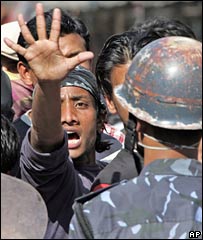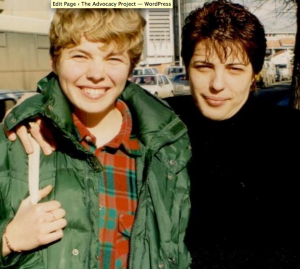Vision and HistoryAP is committed to action and we encourage partners to develop campaigns to address the cause of their dis-empowerment. Most need no urging. To them, advocacy means action. Our job is to provide the tools.  Nepal 2006: AP offered a voice to NGO partners when they were muzzled by the regime. A year later, they helped to lead Nepal’s peaceful transition to democracy. AP helps partners to launch an innovative project, which we call a startup. We ask that the startup seeks to protect one of the following categories of vulnerable people: women; children; survivors of conflict (such as relatives of the disappeared); persons with disability; the environment; a threatened indigenous group or minority. (Our 2019 focus is on working for women and girls.) We will support 8 startups in 2019. Our hope is that in developing and managing a startup, partners will strengthen their organizations and position themselves for the long-term. As a result, we ask that the partner commits to the following: set clear goals; develop a plan and budget; identify beneficiaries; provide essential services, with measurable benefits; be 100% managed by the partner; include women in senior management; report to donors; measure impacts; and plan for long-term sustainability. In each case, our main goal is – with the partner’s full agreement – to strengthen the partner organization and ensure that the campaign is sustained. This is undertaken in the spirit of partnership, with AP and the partner contributing on the basis of our respective expertise. In time, we hope that the startup will evolve into a self-sustaining program and eventually lead to social change. The following startups have evolved into programs and attracted significant donor support: Remembering the Srebrenica massacre in Bosnia through quilting (1999-2015); Empowering women in newly-independent Kosovo (2000-2005); Advancing girl’s education in Afghanistan (2003-2008); Helping Roma women in Europe to use IT and organize (2003-2006); Protecting the Travelers of Dale Farm from eviction (2006-2012); Protecting human rights in the minority Tamil areas of Sri Lanka (2008-2012); Reducing the risk of war rape in South Kivu, DRC (2009-2013); and empowering survivors of war rape in Mali (2013-).  Kosovo 2003: AP trained Heroina Telaku (left) to connect members of the newly-formed Kosova Women’s Network and help KWN to become an effective advocate for women’s rights. AP supports this process by sending a staff member or Peace Fellow to help launch the startup. One example occurred in South Kivu, DRC, in 2008 when we suggested that our Congolese partner SOS Femmes en Danger could reduce the risk of armed sexual violence by renting land where women could cultivate in security. This formed the basis for a 4-year campaign that attracted support from the German government and reduced sexual violence in that area. Sometimes the idea of a startup will come from a Peace Fellow. This happened in 2006, when Yvette Barnes helped her hosts at BOSFAM to produce the first Srebrenica Memorial quilt. Ned Meerdink (2009) came up with several innovative approaches for reducing the threat of sexual violence during his fellowship at SOSFED in the Congo. Simon Klatschi (2010) opened our eyes to the suffering of Agent Orange survivors in Vietnam. Rebecca Scherpelz (2011) had the idea for building accessible toilets in Uganda for persons with disability. All of the startups that we support today began with similarly inspired ideas. As a general principle, AP withdraws from a program after five years, by which time the campaign should be sustainable and the partner have achieved self-sufficiency. The AP Board may decide to extend support after 5 years, in exceptional circumstances. Once we make a commitment to support a startup, we also commit to raising funds and are proud to have raised over $4 million for partners since 2001. We charge a flat fee of 5% for all funds transferred to partners (fiscal partners); a flat fee of 10% for all funds raised for partners; and a daily rate for services (writing proposals, deploying Peace Fellows, planning budgeting, evaluation etc). We measure results carefully and our own monitoring has become more methodical through the years. In 2007 we analyzed the results achieved from working with 50 partners over the previous ten years. In 2009, we began tracking the progress of campaigns in annual reports. In addition, each individual campaign page will track results as the startup moves forward. |
